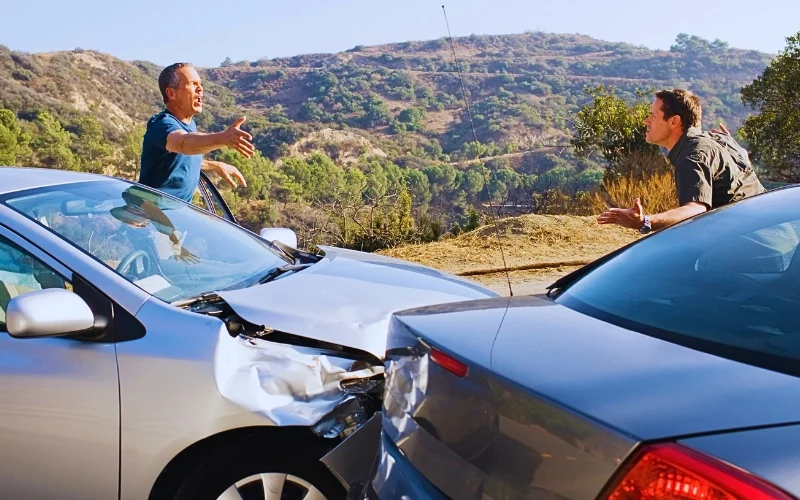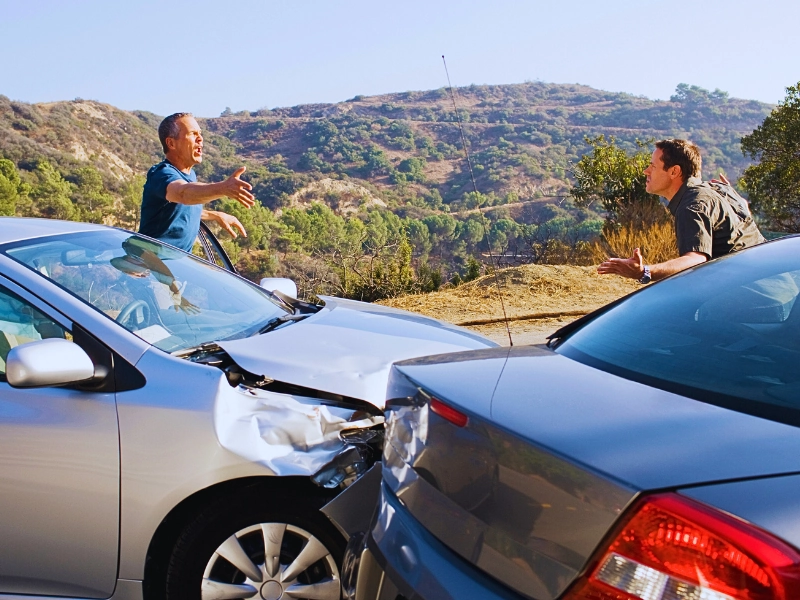Rear-Ended While Stopped in Traffic? What Florida Law Says About Fault and Compensation
30Jul
If you were rear-ended while stopped in traffic, you may be able to recover compensation from the driver who rear-ended you, as Florida liability laws tend to automatically assign responsibility to the rear driver in these collisions, with some exceptions. Knowing more about Florida’s no-fault laws and how compensation works in this state could help you prepare a case against a liable driver.

To consult a Clearwater car accident attorney and discuss compensation, call Light & Wyatt Law Group at 727-499-9900 to schedule a free consultation.
Table of Contents
Florida’s Fault Rules in Rear-End Collisions
Rear-end collisions are among the most frequent types of accidents that drivers get into, with the National Highway Traffic Safety Administration (NHTSA) finding that rear-end accidents account for 29% of all accidents. These accidents can lead to injuries, including whiplash or even life-threatening injuries in some instances.
If another driver rear-ended you in Florida while stopped in traffic, you may have the chance to file a claim to recover compensation from the negligent driver. According to Florida fault rules, there is a presumption of negligence in these accidents that makes the rear driver liable in most cases. More specifically, the rear-end driver tends to be liable in the following situations:
- The rear driver collides into another vehicle that slows to account for slowed or stopped traffic ahead.
- The rear driver speeds up and assumes that the driver in front will speed up as well, causing the driver to crash into the other’s rear.
- The driver in front signals a turn, but the rear driver fails to notice or slow down to accommodate the turn.
- A driver speeds through an intersection to avoid hitting a red light, colliding with another vehicle in front that travels at a steady speed.
There are some circumstances when a rear-end driver is not at fault for an accident. For instance, a rear driver might hit another in front whose brake lights are broken or the vehicle in front may make a sudden, unexpected turn, not giving the rear driver time to slow down.
Does Being Stopped in Traffic Impact Your Injury Claim?
Generally, being stopped in traffic will increase the likelihood of the rear driver being liable for a rear-end collision. In many of these cases, when drivers are stopped in traffic and a rear-end crash occurs, the rear driver fails to pay attention to the stopped traffic ahead, preventing him or her from stopping in time to avoid a collision. This might result from distracted driving, following too closely, or fatigued driving during commutes and long trips.
At the same time, you must consider the nature of the accident and who was liable based on Florida’s comparative negligence rules. If you crash while stopped in traffic, front drivers may still be liable if they contributed to the accident in some way, according to a judge or jury.
For example, the front driver might be 30% responsible for an accident if he or she made a sudden lane change without signaling, causing an accident. Meanwhile, the rear driver would be 70% liable. This would mean that the front injured driver would be able to seek 70% of the total amount of compensation available.
What Compensation Can You Recover After Being Rear-Ended?
Victims may file injury claims for rear-end accidents by going through their personal injury protection (PIP) insurance, which every resident of Florida must carry. PIP covers a limited amount of medical expenses and lost income, but victims may be able to recover additional compensation through a third-party claim or lawsuit.
The following are the main types of compensation that individuals may recover in these cases, which will factor into how car accident settlements are calculated.
Economic Damages
The principal type of compensation that victims may recover is economic. These damages apply to the financial losses resulting from an accident, including medical expenses, lost income, lost earning capacity, and accommodations for disabilities.
Non-Economic Damages
In addition to economic damages, third-party injury claims could help recover compensation for non-economic damages, such as pain and suffering, loss of enjoyment of life, disfigurement, and loss of consortium following the accident.
Why Hire an Attorney?
It’s critical to know what to do after a car accident, and one of the first and most important steps is to consult a car accident lawyer.
Although it can be easy in many instances to prove that a rear-end driver was liable for an accident, this isn’t always the case. Understanding the importance of hiring a Clearwater car accident attorney could help you find the right representation, as experienced lawyers could help you prove liability and seek total compensation.
To determine whether you have a viable third-party claim, consult a Florida rear-end crash liability lawyer at Light & Wyatt Law Group. You can contact us online and find out how we might be able to assist.
